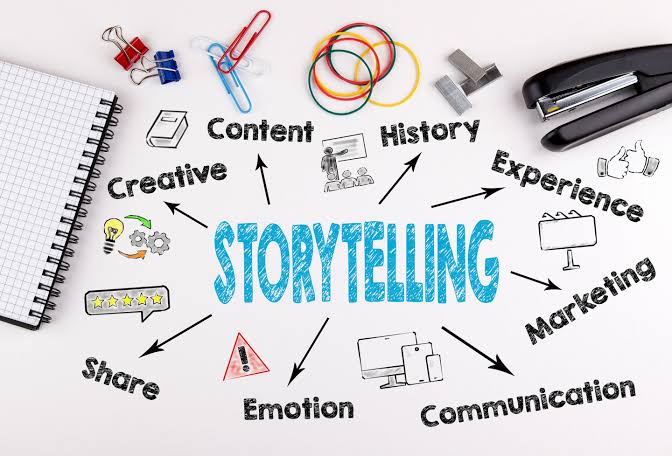Some of the most vital strategies that marketers fail to include in their storytelling approach include Persuasion, Engagement, and entertainment.
This might be as simple as getting me to remember the brand name or associate the brand with a positive feeling. Stronger persuasion might get me to consider buying the product, or I may be inspired to share the ad with friends.
The climax and resolution of a story you can’t wait to share with friends and family. Think of a movie you watched over the weekend and recommended to colleagues on Monday. It’s the power of the third act that determines whether that movie was surprising or emotionally satisfying enough to remember days later.
Here’s some advice for any marketer clamoring for attention on social media: Pay more attention to movies that generate buzz through word-of-mouth. But instead of studying their marketing, deconstruct their storytelling. These days clients and agencies love to talk about the importance of storytelling, but most couldn’t describe the plot of “One Fish, Two Fish, Red Fish, Blue Fish” without trying to explain the unique selling proposition for the blue fish.
That’s because marketers still emphasize rational over emotional and reach over relevance, but it doesn’t matter how many people you reach if they’re going to forget your message the next day.
Act one is all about engaging your audience, getting their attention, and that’s where marketers put most of their efforts. This is a mistake, and when you think about it, not that hard. Any jackass with an air horn can get your attention.
Brands obsess about attention, and for good reason. A fractured media landscape makes it harder to get noticed, especially with attention spans getting shorter. Yet too many ads are trying too hard, and nothing pushes someone away more than desperation. Why are we still subjected to digital ad units that pop up and make it impossible to read an article or watch a video? That might get our attention, but it’s obnoxious. Now that you’ve rudely interrupted me, get lost.
This might explain why so many ads are trying to be funny but aren’t. Humor is the best way to disarm and build an emotional connection, but funny is hard. Just look at the number of failed sitcoms, rom-com disasters or an audience at a comedy club when a standup routine just doesn’t click. This is why agencies get paid—to break through the noise in the most entertaining and likable way possible.
For some reason, fewer and fewer ads rise to the occasion. Watch live sports or an awards show with a teenager sometime, then count how many times you hear the word “lame” during every commercial break. When they laugh, it’s for good reason, and sometimes that’s because of an ad, or a TikTok video, or a meme, but it doesn’t happen very often. That isn’t mere teen cynicism you’re hearing, it’s candor.
Today’s ads focus all their energy on attention and none of their effort on plot. Without a plot, there is no punchline. Humor doesn’t happen at the beginning, it comes at the end.
Great comedians know this. They tell stories, and somewhere along the way, the story takes an unexpected turn, and in surprise and shock you laugh. It’s involuntary, it’s honest and it’s a feeling you never forget. From that first guffaw a connection gets made, and regardless of how you felt about that comedian before, now you’re an advocate for their brand of comedy.
The turn in the tale is not only surprising, it’s often uncomfortable or even outrageous, because great comedy, like a great story, helps us see the world from a different perspective and, in the end, take ourselves a bit less seriously. The current cultural craze for taking offense at every word that isn’t sanitized or politicized in just the right way has not only neutered comedians, it has made most advertising—in the words of a wise teenager—lame.
As an industry, we need to get off our high horse and bring our brands down to earth again. Brand purpose is important, but let’s face it, we’ve gotten a bit preachy. Like the Fresh Prince, we seem to have lost our sense of humor, and we need to get it back. Otherwise we’ll be as irrelevant as the Oscars and have to start slapping our consumers to get their attention.
This is why branded content and creator collaborations are on the rise, but only a handful of agencies have cracked that code. As an industry, we are no longer versatile. We’ve become formulaic. Marketing isn’t a science, it’s art as commerce. Ads are stories that sell.
This comes full circle (in a non-linear way) to the second act, which is all about intrigue and holding a consumer’s attention. This is the hardest thing to do well. Many movies, books and plays fall apart in the middle, because attention strays, things get predictable or the situation isn’t relatable or relevant to the audience. Relevance is always the goal, and story is always the key. Focus on that and you’ll never be lame again.
-Culled from Ad Age





Comment
No comments found.